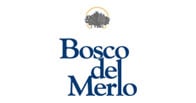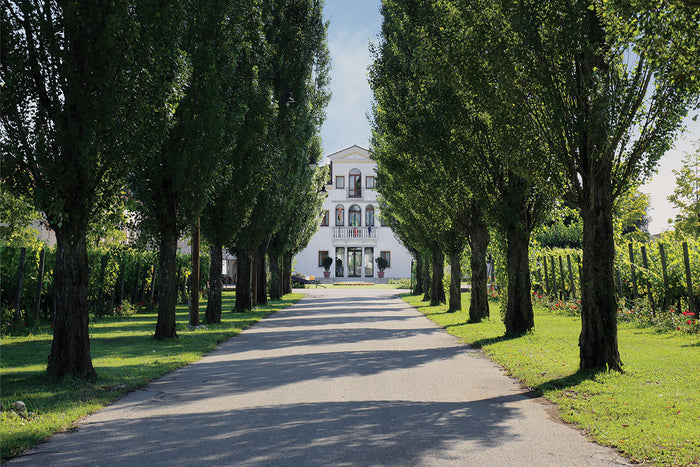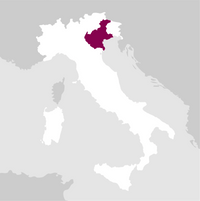Description
The aromatic characteristics of this wine, such as its minerality and freshness, blend perfectly with the winery's style, recognisable from the first tasting.

Perfume

Color

Taste
Serve at:
10 - 12 °C.
Longevity:
05 - 10 years

- Start up year: 1988
- Oenologist: Paolo Bertuzzo, Leonardo Valenti
- Bottles produced: 920.000
- Hectares: 100
The Bosco del Merlo estate winery started up in 1977 in Annone Veneto, founded by siblings Carlo, Lucia and Roberto Paladin. Thanks to a profitable collaboration with the Istituto Sperimentale per la Viticoltura di Conegliano, a careful and modern zoning technique was immediately implemented in order to get the best out of the terroir, working the vineyard piece by piece. In the nineties, in the small town of Lison di Portogruaro, the cradle of viticulture in this wine-making region, a further 50 hectares of land was acquired, which therefore doubled capacity, increasing it to around 100 hectares in total.
Over the course of the years Bosco del Merlo has benefited from the advice of famous oenologists and experts from the Faculties of Oenology and Agriculture in Padua and Milan, such as Franco Bernabei and Leonardo Valenti, in its quest to find the most forward-thinking solutions for achieving optimal quality with the lowest environmental impact. Read more


| Name | Bosco del Merlo Ribolla Gialla Iside 2023 |
|---|---|
| Type | White green still |
| Denomination | Venezia Giulia IGT |
| Vintage | 2023 |
| Size | 0,75 l |
| Alcohol content | 13.0% by volume |
| Grape varieties | 100% Ribolla Gialla |
| Country | Italy |
| Region | Friuli-Venezia Giulia |
| Vendor | Bosco del Merlo |
| Story | Isis was the goddess of magic and motherhood. In Ancient Egyptian tradition, Isis was a symbol of fertility and rebirth with a particular reference to the land and nature. |
| Harvest | The grapes are harvested when perfectly ripe, during the first decade of September. ing takes place during the chillest hours of the day to preserve the primary aromas. |
| Wine making | After a short maceration, the must is separated from the skins through gentle pressing. Fermentation takes place in stainless steel tanks at low temperatures. |
| Aging | This is followed by ageing on the lees for an extended period before bottling. |
| Allergens | Contains sulphites |





